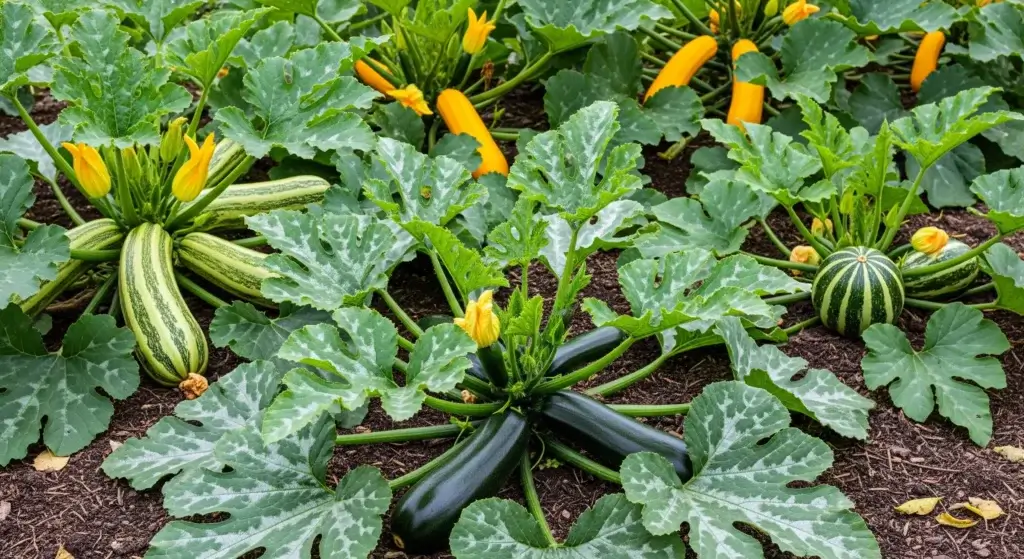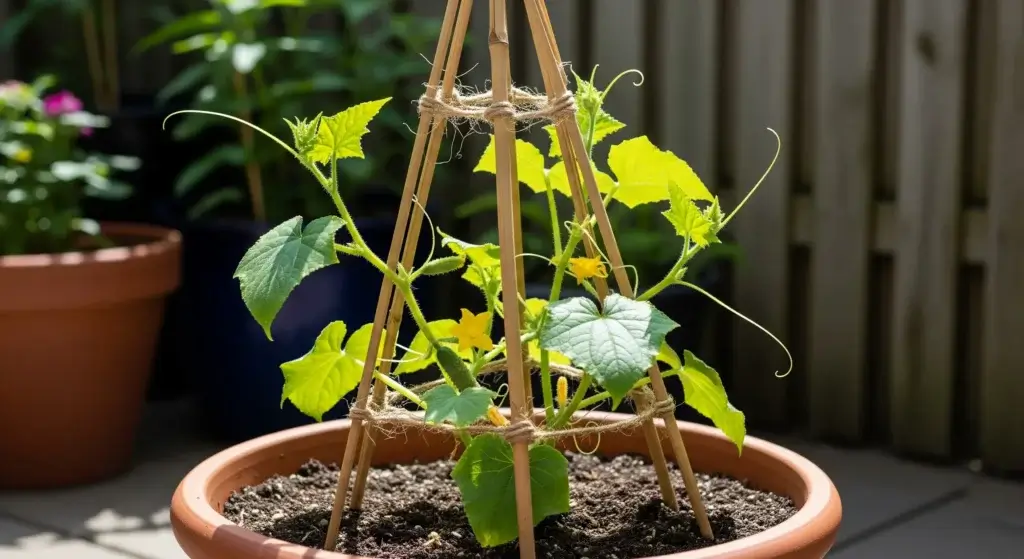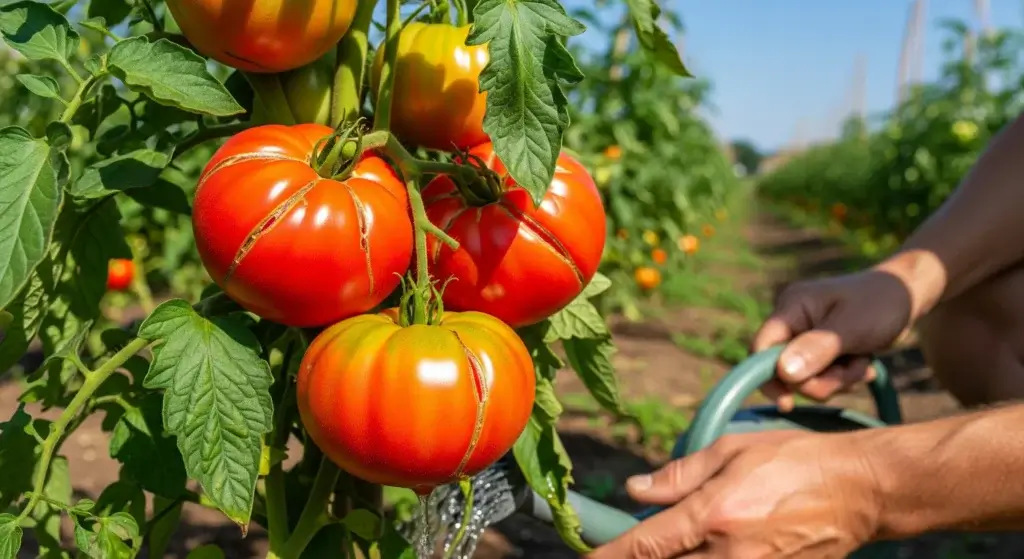
Healthy pepper plants begin with healthy soil.
Composting turns everyday food scraps and yard waste into powerful, natural fertilizer—giving your peppers the nutrients they need to grow strong and produce abundantly.
By feeding your plants with homemade compost, you’re not just reducing waste; you’re building a richer, more sustainable garden. Start composting today, and watch your peppers thrive!
Why Compost Is Important for Pepper Plants
Nutrient needs of pepper plants
Peppers, like all plants, require a balanced diet of nutrients to grow and produce fruit.
The primary nutrients include:
- Nitrogen (N): Essential for vegetative growth, particularly important during the early stages to develop healthy leaves and stems.
- Phosphorus (P): Supports root development and is crucial during the flowering and fruiting stages.
- Potassium (K): Aids in overall plant health and disease resistance.
Additionally, secondary nutrients like calcium, magnesium, and sulfur play roles in pepper plant development.
Calcium, for instance, helps prevent blossom end rot, a common issue in peppers.
Compost provides essential nutrients
Compost is decomposed organic matter rich in these vital nutrients.
Incorporating compost into your garden replenishes the soil with nitrogen, phosphorus, potassium, and trace elements, reducing the need for synthetic fertilizers.
This natural amendment releases nutrients slowly, ensuring a steady supply throughout the growing season.
Compost improves soil structure
Beyond nutrition, compost enhances soil structure by:
- Improving drainage: Loosens compacted soils, allowing roots to penetrate easily and access water and nutrients.
- Increasing water retention: Helps sandy soils retain moisture, reducing the need for frequent watering.
- Encouraging beneficial microorganisms: Supports a healthy soil microbiome, which aids in nutrient absorption and disease suppression.

What You Can Throw in Your Compost Bin
Creating quality compost involves balancing “green” nitrogen-rich materials and “brown” carbon-rich materials.
Green stuff
- Kitchen scraps: Vegetable peels, coffee grounds, and tea bags. Avoid meat and dairy products, as they can attract pests.
- Grass clippings: Use untreated clippings; chemicals can hinder the composting process.
- Weeds: Only before they set seed to prevent spreading in your garden.
Brown stuff
- Dried leaves: Abundant in fall, they add necessary carbon to balance the greens.
- Small twigs: Provide structure to the compost pile, aiding aeration.
- Shredded paper or cardboard: Use non-glossy, uncoated paper products to add carbon.
Maintaining a balance between greens and browns ensures efficient decomposition and a nutrient-rich end product.
How to Start Composting
Choosing a compost bin or pile
First, decide whether a compost bin or open pile works best for you.
Bins keep things tidy and are great for small spaces, while open piles handle larger amounts of material.
Whichever you choose, pick a spot with decent drainage and a mix of sun and shade.
Layering your compost
Kick things off with a base of coarse materials like small twigs or straw—this helps with airflow.
Then, alternate between “greens” (like veggie scraps and grass clippings) and “browns” (such as dried leaves or cardboard).
A good rule of thumb is 1 part greens to 2-3 parts browns.
This balance speeds up decomposition and keeps smells in check.
Maintaining your compost
- Aeration: Turn the pile regularly to introduce oxygen, which speeds up decomposition.
- Moisture: Keep the pile as damp as a wrung-out sponge. Too dry, and decomposition slows; too wet, and it may become anaerobic and smelly.
- Temperature: A well-maintained pile will heat up, indicating active decomposition.

How Long Does It Take to Compost?
Composting isn’t instant—it’s more like a slow-cooked meal for your garden.
Depending on what you toss in and how you tend it, finished compost can take anywhere from two months to a year.
Chopping materials small, keeping the pile moist (like a wrung-out sponge), and turning it every few weeks will speed things up.
The more effort you put in, the sooner you’ll get that rich, crumbly compost your plants will love.
Using Compost for Pepper Plants
When to apply compost
Give your peppers the best start by mixing compost into the soil before planting.
Then, give them an extra boost during the growing season by sprinkling more compost around the base of each plant (but not touching the stems).
This two-step feeding keeps your peppers strong and productive all season long.
How to incorporate compost into the soil
For new plantings
- Dig 2-3 inches of compost into the top 6-8 inches of soil before putting plants in the ground
- This creates a nutrient-rich home for young roots
For existing plants
- Spread a 1-inch layer of compost around the base of each plant
- Keep it 2-3 inches away from stems to avoid moisture buildup
- Gently mix into the topsoil or let rain wash nutrients down
This simple feeding routine gives plants what they need without overwhelming them. The compost slowly releases nutrients exactly where roots can reach them.
Troubleshooting Common Composting Issues

Foul odors
Your compost should smell earthy, not rotten. If it stinks:
- Mix in more browns (dry leaves, shredded paper)
- Turn the pile weekly to let it breathe
- This balances the greens (food scraps) and adds oxygen
Pests
Keep raccoons and pests away by:
- Skipping meat, dairy, and greasy foods
- Burying food scraps under brown layers
- Using a bin with a lid if needed
Slow decomposition
Speed up slow compost by:
- Chopping materials into smaller pieces
- Maintaining a damp (not soggy) texture
- Turning every 1-2 weeks to circulate air
Final Thoughts
Composting is a simple, eco-friendly way to turn kitchen scraps and yard waste into rich, natural fertilizer for your garden.
When you give your pepper plants the nutrients they need from high-quality compost, you help them grow stronger and produce a better harvest.
With the right care, your plants will thrive—and so will your garden.



